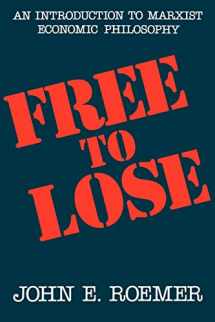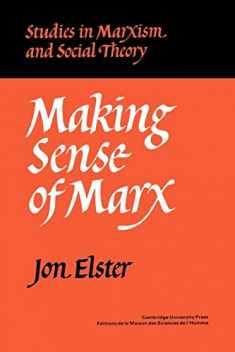
Free to Lose: An Introduction to Marxist Economic Philosophy (Civilization of the American Indian (Paperback))
Book details
Summary
Description
Attacking the usefulness of such central Marxian concepts as the labor theory of value and surplus value, John Roemer reconstructs Marxian economic philosophy from the concepts of exploitation and class, showing that exploitation can be derived from a system of property relations. He then looks at the causes of the unequal distribution of wealth, including robbery and plunder, willingness to take risks, differential rates of time preference, luck, and entrepreneurship. He further examines the evolution of property systems―slave, feudal, capitalist, socialist―from the perspective of the theory of historical materialism, and ends by analyzing the properties of a social system in which ownership of productive assets in the external world is public, while ownership of internal productive assets―skills and talents―is private.


We would LOVE it if you could help us and other readers by reviewing the book
Book review




